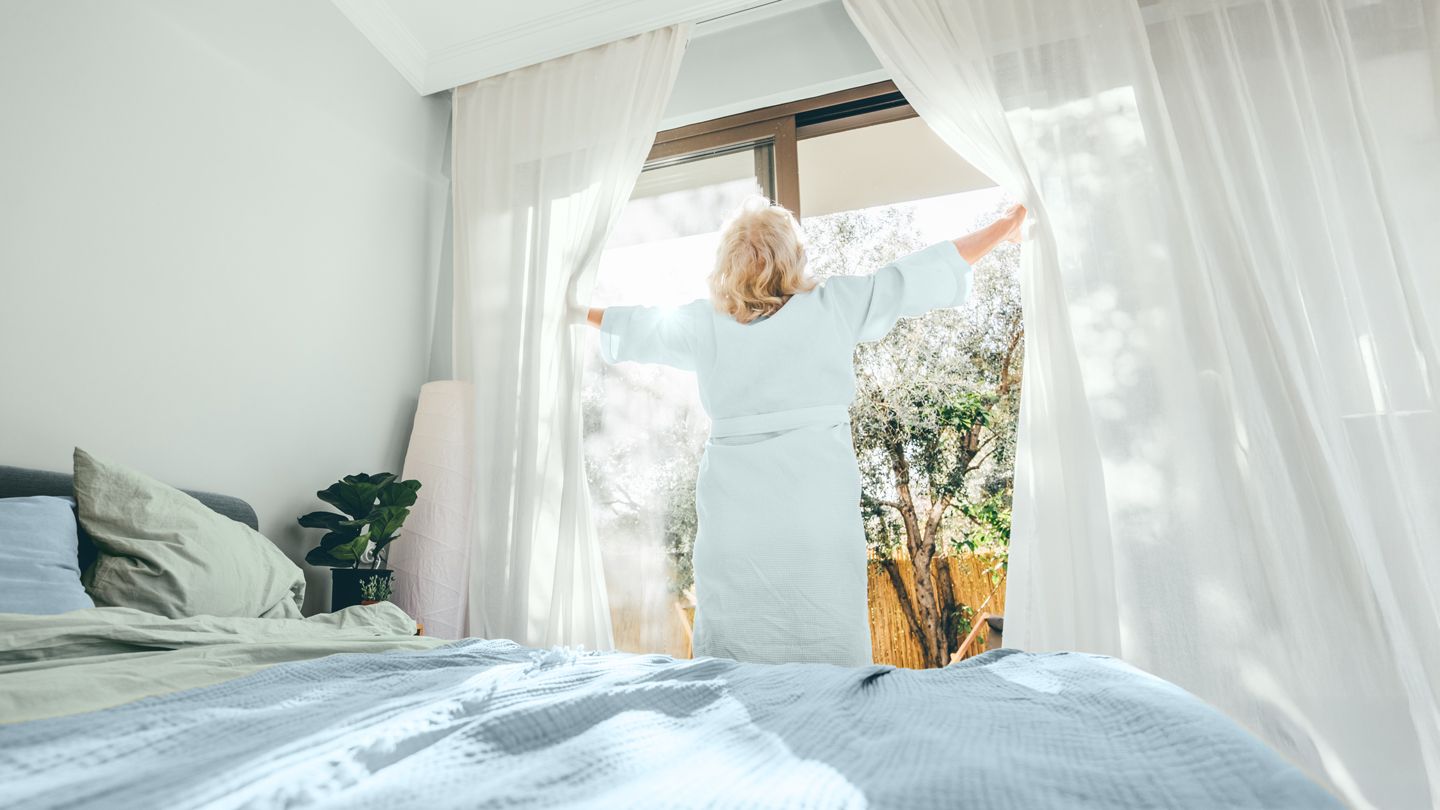People living with osteoporosis have reduced bone mineral density (BMD), which weakens bones and can increase your risk of fractures or breaks. And just like poor sleep hygiene can affect hormones, mental health, and more, it can also affect BMD and bone health.
That said, if you have osteoporosis, it’s especially important to understand the role of sleeping habits on your bones:
Sleep Duration Can Impact Bone Density
Research has found that women who get around five hours of sleep or less each night have lower BMD than those who sleep seven or eight hours a night. And another study found that people who sleep more than nine hours each night may have a lower BMD than those who get seven to eight hours of sleep. The exact reason is unclear but could include less physical activity among poor sleepers, elevated cortisol, or other hormone disruptions, says Marcella Walker, MD, an assistant professor of clinical medicine in endocrinology at Columbia University College of Physicians and Surgeons in New York City.
Sleep Disorders May Affect Bone Health
Sleep disorders, particularly obstructive sleep apnea (OSA), can have a negative impact on bone health. OSA causes you to stop breathing for periods when you sleep. This can lead to low oxygen levels that disrupt bone metabolism, resulting in bone loss. And researchers have found that OSA is associated with a significantly increased risk of developing osteoporosis.
Sleep Patterns Change as You Age
Older adults still need the same amount of sleep as younger adults — typically seven to nine hours a night — but many older people don’t sleep well. Some reasons for this include hormone changes, medication side effects, and other conditions, such as restless leg syndrome and REM sleep behavior disorder, both of which primarily affect older people. You may also go to bed earlier and wake up earlier as you get older. Reduced bladder capacity can also occur with age, so many older adults wake up at night to use the bathroom, which disrupts sleep. “It’s also possible that people who sleep poorly have other medical conditions that contribute both to sleep disturbances and bone loss,” Dr. Walker notes.
Osteoporosis Itself May Impair Sleep
People who develop fractures or chronic pain from osteoporosis may find it difficult to get comfortable in bed. This can affect how well and how long you sleep, says Walker. “Notably, fewer studies have focused on sleep quality, which may be just as important as sleep duration.”
Read the full article here




